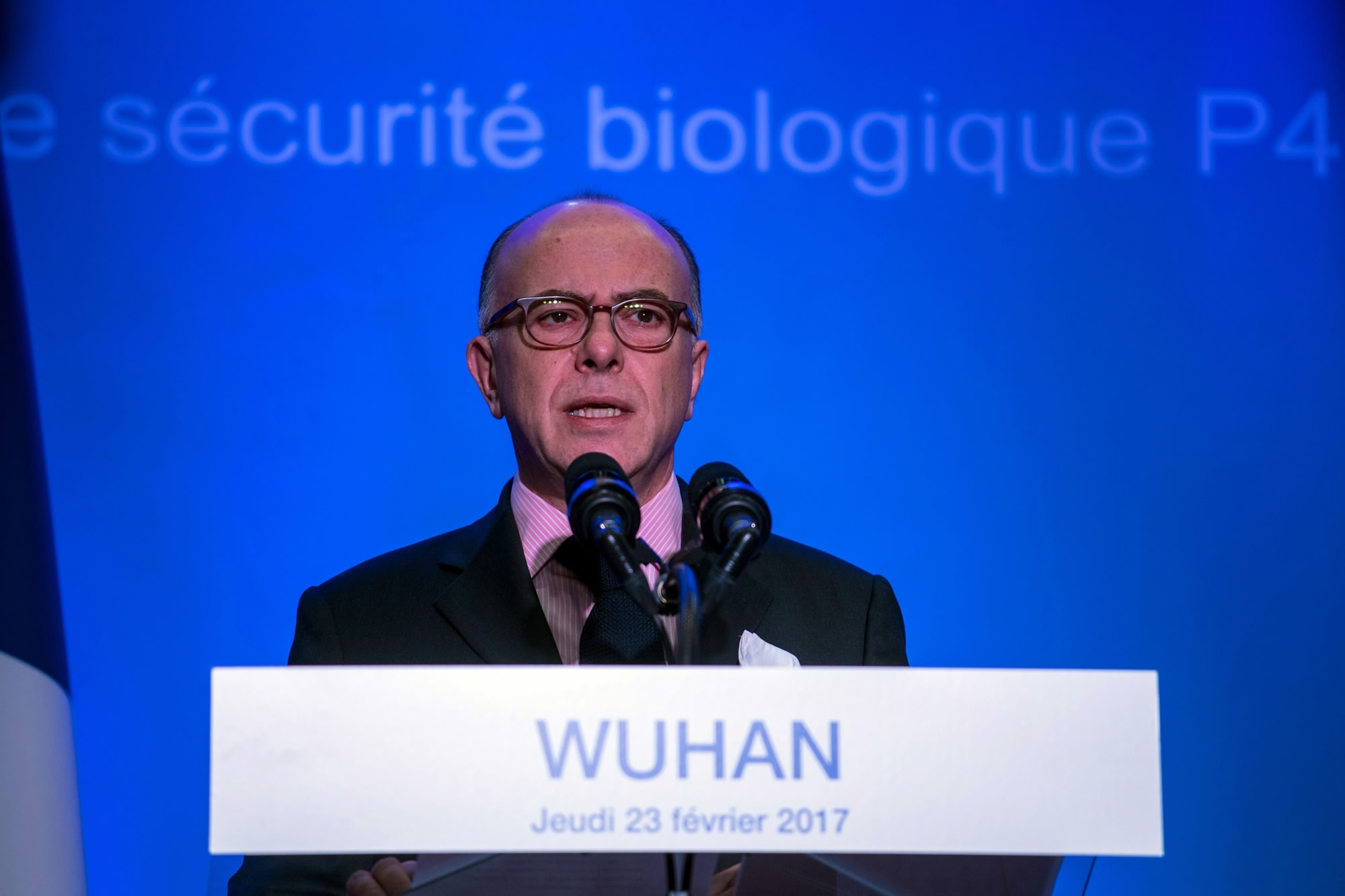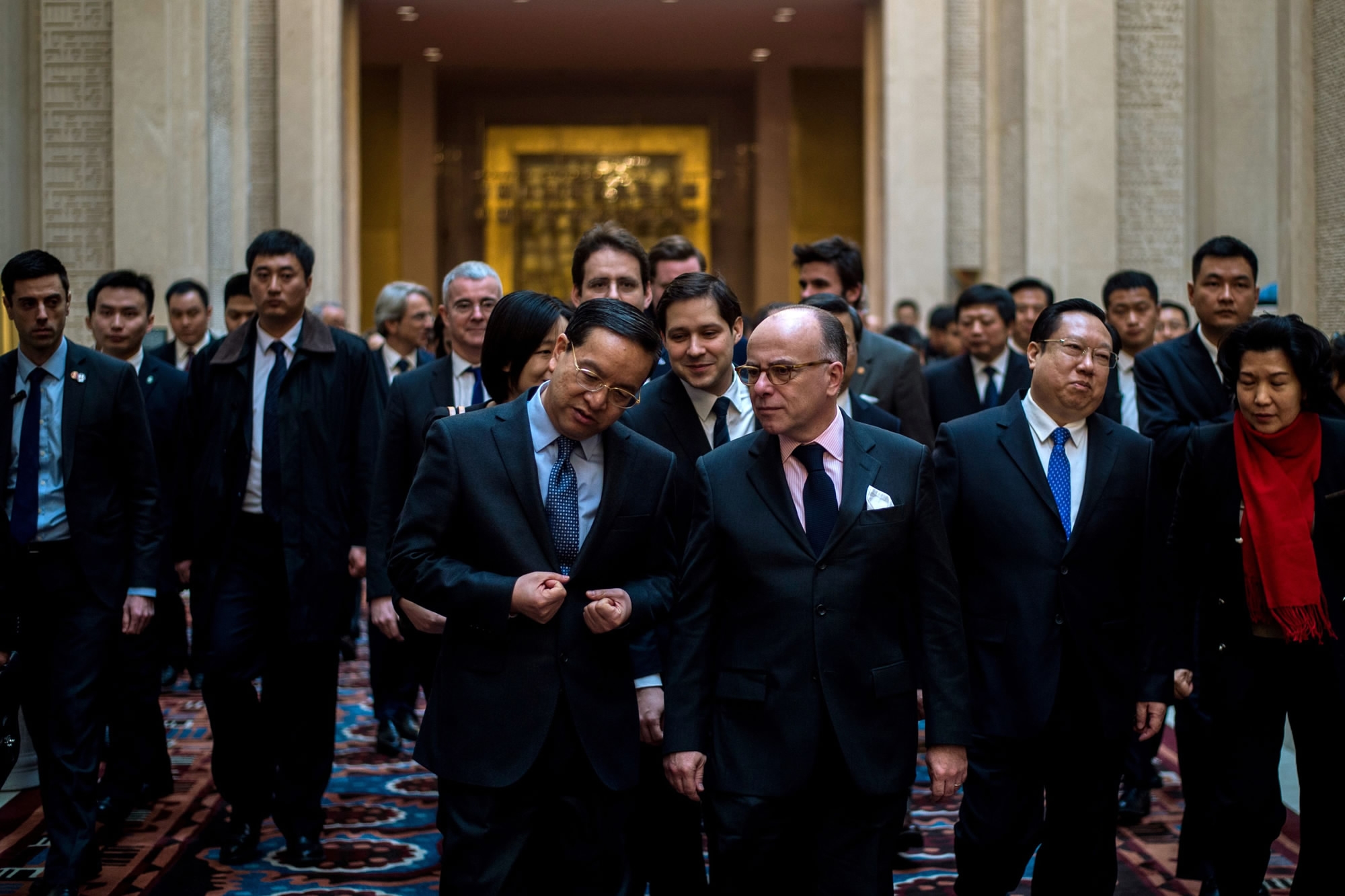Guest commentary by Hichem Karoui
French media platforms commenting on the visit of Prime Minister Bernard Cazeneuve to Beijing on February 21-23 emphasized the need for both countries to cooperate in fighting against the rise of “protectionism.” Some associated the visit of the French PM to an attempt at rallying China to a fight against “economic barriers.” The allusion to the US is not concealed, although in Beijing, the perception is different, and conceives of the visit as a normal high-level consultation.
Yet in France, they also acknowledge that continual consultation with Chinese leaders has become mandatory for any policy-maker in Europe. Economically, the EU has become China’s biggest trading partner and China has become the EU’s second largest trading partner since 2004.

France's Prime Minister Bernard Cazeneuve speaks after his visit to the P4 laboratory in Wuhan, capital city of central China's Hubei Province, on February 23, 2017. /CFP Photo
With France, economic and trade exchanges continue to progress, but remain markedly imbalanced. The trade deficit reached 29 billion euros in 2015. China is ahead of Germany, France’s first bilateral trade deficit. French market share in China was 1.6 percent in 2016, compared with around 5.5 percent for Germany, 1.2 percent for the United Kingdom and one percent for Italy. China is France’s second largest supplier, with nine percent of the market (ahead of the United States and the United Kingdom). Imports from China consist mainly of computer, electronic and optical products (30 percent) and textile and leather products (23 percent). Both France and China are endeavoring to preserve their market share in each other’s markets.
But with nearly 1,600 French companies settled in China, the aforementioned deficit should not overshadow the many successes experienced by French companies in China, and the prospects for development in the new sectors of economic cooperation (environment and sustainable development, financial sector, and the agri-food industry in particular).

France's Prime Minister Bernard Cazeneuve (R) and Secretary of Hubei Provincial Committee of the Communist Party of China (CPC) Jiang Chaoliang talk in Wuhan, capital city of central China's Hubei Province, on February 23, 2017. /CFP Photo
The visit of Prime Minister Bernard Cazeneuve to China is indeed a continuation of the same effort that brought the 53-year old diplomatic relationship from the status of “global partnership” announced in the joint declaration of May 16, 1997, to the level of “global strategic partnership,” declared in 2004. The high-level bilateral visits and exchanges between the two partners have succeeded to overcome difficulties, solve problems, and “bring water to the mill” as goes the French dictum.
The visit of Chinese President Xi Jinping to France in March 2014 coincided with the celebration of 50 years of diplomatic relations between the two countries. During that visit, a cooperation plan was adopted. It set out the main operational orientations for the Franco-Chinese partnership, which has developed since, along three main axes: strengthening political dialogue, working to rebalance economic relations in a spirit of reciprocity, and fostering greater exchanges between civil societies, particularly between French and Chinese youth.
The Franco-Chinese cooperation in the nuclear field is an illustration of a long-term industrial partnership that France and China have been able to build. It was strengthened in 2010 by the decision of the Heads of State to establish a global partnership covering all stages of the nuclear fuel cycle, in 2015 by adopting a joint declaration on civil and nuclear cooperation, and in 2016 by the realization of the project of Hinkley Point C.
During their press conference in Beijing, Li Keqiang and Bernard Cazeneuve made sure the dialogue between both sides was fairly positive.
There are enough challenges on the international arena for France and China to foster their cooperation and strive together, particularly for the free flow of global exchanges, and to prevent a “trade war” that would benefit nobody and force even the world largest economy into curling up.
(Dr. Hichem Karoui is Non-Resident Senior Fellow at the Center for China and Globalization (CCG), Beijing, and a French-born diplomatic advisor. The article reflects the author’s opinion, and does not necessarily represent the view of CGTN.)









